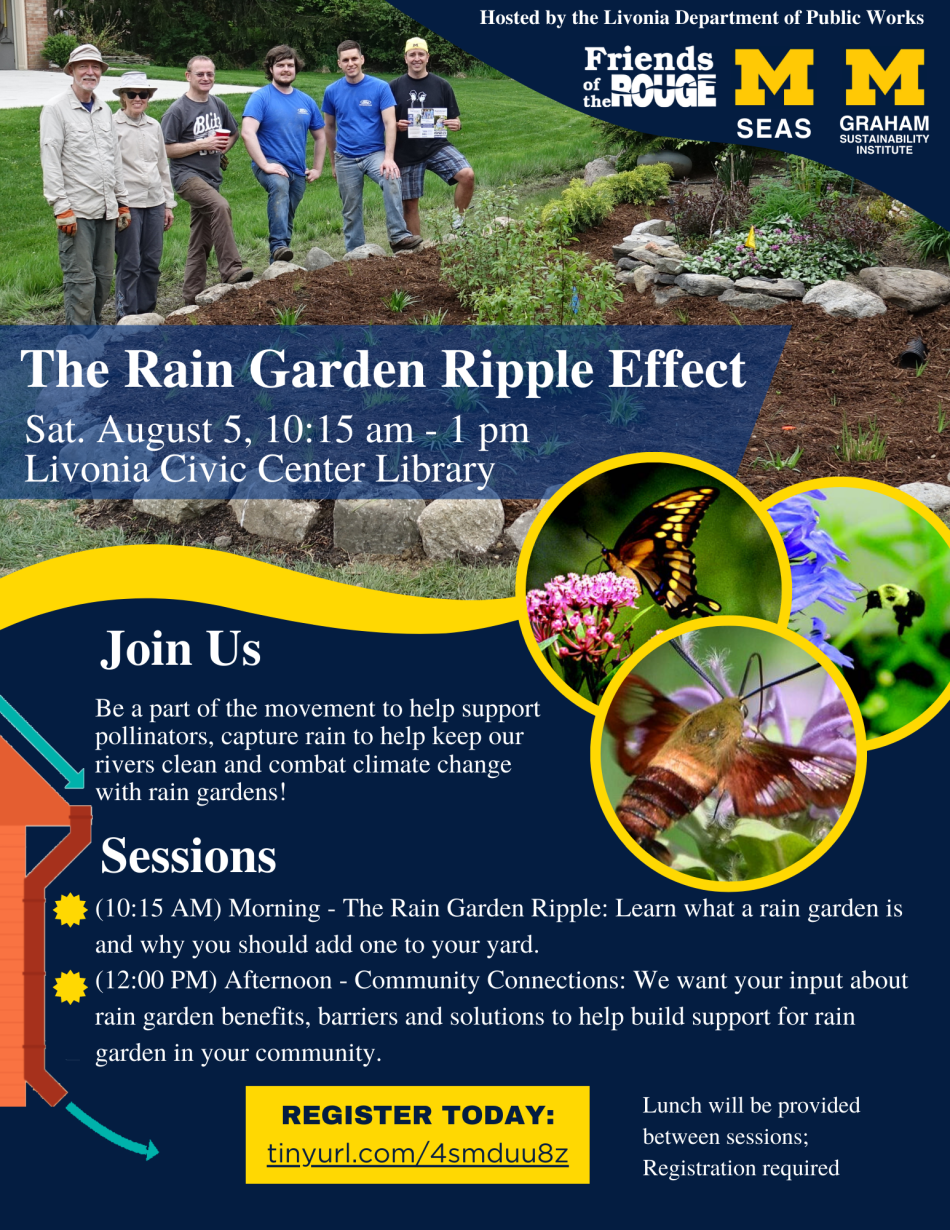
 back to all events
back to all events
The Rain Garden Ripple Effect

This event is put on by Friends of the Rouge in partnership with the University of Michigan. Come be a part of the movement to help support pollinators, capture rain to help keep our rivers clean and combat climate change with rain gardens! Be the first neighbor on your block to bring rain gardens to your community, it’s only a matter of time until more follow your lead. We will have two sessions throughout the day; This event is free and open to the public, everyone is welcome.
(10:15 AM) Morning Session – The Rain Garden Ripple: Learn in depth about what a rain garden is and why you should add one to your yard in any community. This informational session on residential rain gardens has no limit of attendees, so bring your friends, family and neighbors!
Lunch will be provided between sessions; please RSVP. During lunch, we will facilitate a discussion around designing a residential rain garden.
(12:00 PM) Afternoon Session – Community Connections: We want your input about rain garden benefits, barriers and solutions to help build support for rain gardens in your community. We will break out into smaller groups and facilitate discussion and get valuable feedback that will help University of Michigan researchers and shape the future of residential rain gardens in the region. Limit of 60 attendees due to space.
Have questions or need accessibility accommodations? Please email Jackie at [email protected]
Presenters:
Cyndi Ross
Friends of the Rouge Restoration Manager
Cyndi has engaged thousands of watershed residents in learning about and installing rain gardens designed to soak in and slow the flow of rain water to the Rouge River.
Runzi Wang
Assistant Professor of Landscape Architecture, University of Michigan School for Environment and Sustainability
Runzi studies neighborhood-scale green infrastructure design and regional-scale water quality management.
Jianxing Guan
Phd student of Landscape Architecture, University of Michigan School for Environment and Sustainability
Jianxing studies the hydrological performance of green infrastructure from social and economic perspectives.

